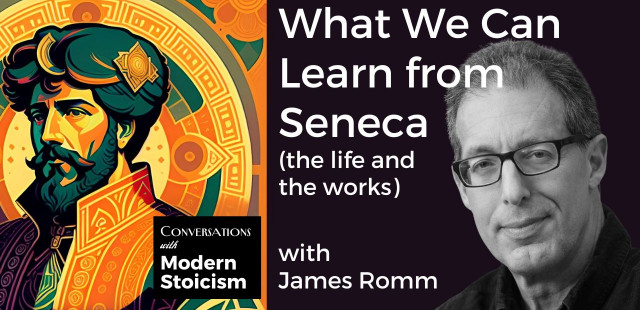Leading up to Stoic Week this year – which runs from Monday, October 1 to Sunday, October 7 – we will publish a series of shorter weekday posts, focused on the theme of “Happiness”. Interested in writing a 300-600 word post, well-informed by Stoicism, on that topic? Email your draft to me, the editor of Stoicism Today. And now, Massimo’s post!
Happiness is a strange word. It’s first use in the English language goes back to the 15th century, and in Shakespeare’s time it meant something different from what it means today: good fortune, in the sense of prosperity. Nowadays it refers to a pleasurable state of well-being and contentment, but even there it may indicate an in-the-moment feeling (“this gelato makes me happy!”) or a long term evaluation of one’s life (“I’m happy with my relationship”). Indeed, psychological research shows that these latter two senses are often at odds: people who have children, for instance, tend to be rather unhappy on a moment-to-moment basis, but often report a high degree of satisfaction when it comes to the meaningfulness of their existence.
It is for this reason that modern positive psychologists (i.e., the psychologists who work on normal aspects of human life, not just the pathologies) have dropped the word altogether. Instead, they have adopted the Greek term, eudaimonia, untranslated. This is an improvement, except that even the ancient Greeks meant different things when using the word.
For instance, the Aristotelians did mean something close to another popular translation of the term, “flourishing,” since they thought that a eudaimonic life requires not just the practice of virtue, but also a certain degree of externals, like health, education, wealth, and even good looks.
By contrast, the Stoics famously said that the sage is “happy” even on the rack, i.e., when tortured. That cannot possibly mean that the sage is flourishing, unless one is willing to deploy a very twisted sense of that term. What the Stoics meant was that — so long as the sage is virtuous (and she is, otherwise she wouldn’t be a sage) — her life was worth living, though very obviously not pleasurable.
Other Greco-Roman schools had their own account of what makes one eudaimon: for the Skeptics it was the suspension of judgment about things, which leads to non-attachment; for the Cyrenaics it was (moderate) physical pleasure; for the Epicureans it was (virtuous) absence of pain. And so forth. Indeed, an appreciation of the differences in how they cashed out eudaimonia is an excellent key to understand the panoply of philosophical approaches within the broad family of virtue ethics.
Within Stoic circles, the major source on happiness is of course Seneca, who wrote a whole book about it. From that book, we can extract what I occasionally call Seneca’s seven commandments, though wise suggestions would be a better way to put it (On the Happy Life, XX, commentary here):
I) I will look upon death or upon a comedy with the same expression of countenance.
II) I will despise riches when I have them as much as when I have them not.
III) I will view all lands as though they belong to me, and my own as though they belonged to all mankind.
IV) Whatever I may possess, I will neither hoard it greedily nor squander it recklessly.
V) I will do nothing because of public opinion, but everything because of conscience.
VI) I will be agreeable with my friends, gentle and mild to my foes: I will grant pardon before I am asked for it, and will meet the wishes of honourable men half-way.
VII) Whenever either Nature demands my breath again, or reason bids me dismiss it, I will quit this life, calling all to witness that I have loved a good conscience, and good pursuits.
I wager that this would be a far better world if we all strove to match our behavior to Seneca’s advice.
Massimo Pigliucci is the K.D. Irani Professor of Philosophy at the City College of New York. He is the author of several books, including How To Be A Stoic: Using Ancient Philosophy to Live a Modern Life. He produces the almost daily Stoic Meditations podcast and blogs at Footnotes To Plato.



